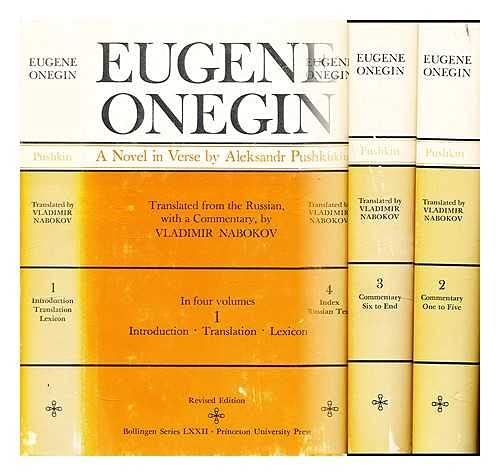



Eugene Onegin is a highly complex text, featuring self-commentary, meta-textuality, allusions to other texts, and parody, in which pre-Romantic and Romantic European literature is digested and broken down. The introduction examines several ways of reading the novel, and text is richly annotated.ĪBOUT THE SERIES: For over 100 years Oxford World's Classics has made available the widest range of literature from around the globe.Įach affordable volume reflects Oxford's commitment to scholarship, providing the most accurate text plus a wealth of other valuable features, including expert introductions by leading authorities, helpful notes to clarify the text, up-to-date bibliographies for further study, and much more.Alexander Pushkin’s novel in verse Eugene Onegin (1833) overcame thresholds imposed by the conventions of genre and style to become a threshold text itself over the course of its canonization marked by innovation and a sharp break with tradition, it is a text that divides Russian literature into a “before” and “after.” Contemporary literary criticism labeled it an “encyclopedia of Russian society”-a label that, throughout the history of its interpretation, certainly obscured the purely literary encyclopedism of the text. This new translation seeks to retain both the literal sense and the poetic music of the original, and capture the poem's spontaneity and wit. Eugene Onegin was Pushkin's own favourite work, and it shows him attempting to transform himself from a romantic poet into a realistic novelist. Set in 1820s imperial Russia, Pushkin's novel in verse follows the emotions and destiny of three men - Onegin the bored fop, Lensky the minor elegiast, and a stylized Pushkin himself - and the fates and affections of three women - Tatyana the provincial beauty, her sister Olga, and Pushkin's mercurial Muse.Įngaging, full of suspense, and varied intone, it also portrays a large cast of other characters and offers the reader many literary, philosophical, and autobiographical digressions, often in a highly satirical vein.

Eugene Onegin is the master work of the poet whom Russians regard as the fountainhead of their literature.


 0 kommentar(er)
0 kommentar(er)
